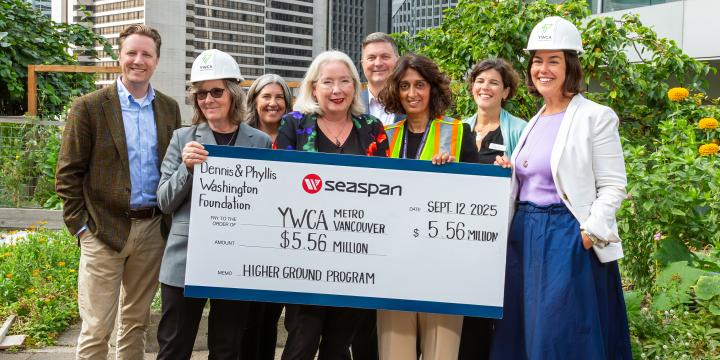
Pursuing Post-Secondary Education While Single Parenting
Embarking on the path to post-secondary education is a significant step in career progression but it can be challenging for mothers parenting alone who are balancing various responsibilities and financial obligations. The YWCA Employment Navigator program offers monthly Study Readiness Workshops that provide valuable information on how to access funding to go back to school. If you're considering this path, here are some answers to common questions in the early stages of this journey.
What are the funding options to pay for my education?
YWCA Bursary Program
This initiative offers scholarships twice a year specifically for single mothers who are active in YWCA programs. Deadlines are April 1 for those with children under 19 and October 1 for those with children 12 and under.
Government Grants and Loans
Federal and provincial student loans and grants can provide substantial support, often with favorable repayment terms.
Scholarships and Bursaries
Look for scholarships from various organizations based on academic achievement, community service and financial need.
Work-Study Programs
Many schools offer part-time work opportunities on campus, allowing you to earn income while studying.
Is the school close to my children’s daycare and where I live?
Research Institutions
Identify accredited institutions near your home and daycare. Tools like Google Maps can help you estimate commute times.
Daycare Options
Some post-secondary institutions have on-campus childcare or can recommend nearby facilities, which can be convenient for students with kids up to kindergarten age.
Online Learning
If commuting is a challenge, consider programs that offer online courses, providing flexibility to study from home.
Which format of learning is right for me?
Full-Time vs. Part-Time
Full-time programs require a greater time commitment but can be completed more quickly. Part-time programs are less intense but might take longer to finish.
Online vs. In-Person
Online programs offer flexibility and convenience, while in-person programs provide hands-on learning and networking opportunities if you are looking to start a career in your field of study.
What are the costs I can expect while attending school?
Tuition and Fees
Include all costs such as tuition, books, and additional fees.
Living Expenses
Account for rent, utilities, groceries, childcare, transportation and, if possible, have an emergency fund for unexpected expenses.
Income
Consider bursaries, scholarships, part-time work, and government assistance. Ensure you have a plan to cover any financial gaps.
Are there any prerequisites to take prior to starting school?
Some programs may require specific courses or assessments before admission:
- Check Requirements: Review the admission criteria for your program to ensure you meet the prerequisites or plan to complete them.
- Preparation Courses: Many institutions offer preparatory courses to help you meet these requirements.
How much time will I need to dedicate to my studies?
Course Load
Full-time programs typically require 35-40 hours per week, including class time and self-study.
Scheduling
Create a weekly schedule that includes classes, study time, childcare, and personal activities.
Support Systems
Utilize support from family, friends, and community resources to help manage your responsibilities.
Pursuing post-secondary education is a commendable goal that can lead to new opportunities and a brighter future. By considering funding options, location, program structure, budgeting, prerequisites and study time, you can develop a feasible plan that aligns with your goals. Remember, support is available through programs like the YWCA Bursary Program and you are not alone on this journey. Take the first step today and embrace the transformative power of education.
What if I need support to navigate the scholarship and bursaries process?
The YWCA Employment Navigator services are designed to support single mothers by providing access to essential resources and educational opportunities during the pre-employment and employment stages. This program empowers participants with the tools and skills necessary to overcome barriers and achieve financial independence for their families. One participant shared, "They gave me very useful information about scholarships and/or grants in the workshop and one-on-one meetings."
By taking advantage of available resources and planning carefully, you can successfully navigate the challenges of pursuing further education and achieve your career goals.
Learn more by visiting the YWCA Employment Navigator page.
This initiative is possible in part by Scotiabank, Vancity and RBC.

